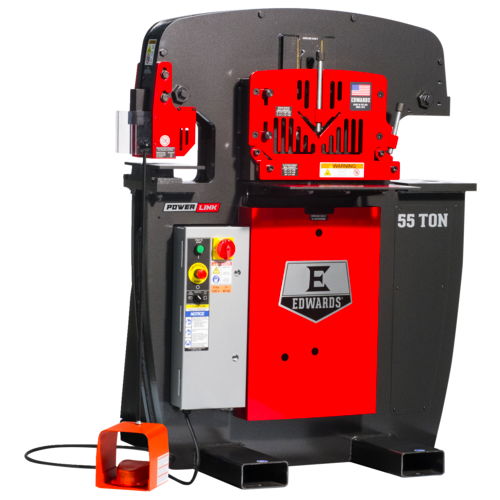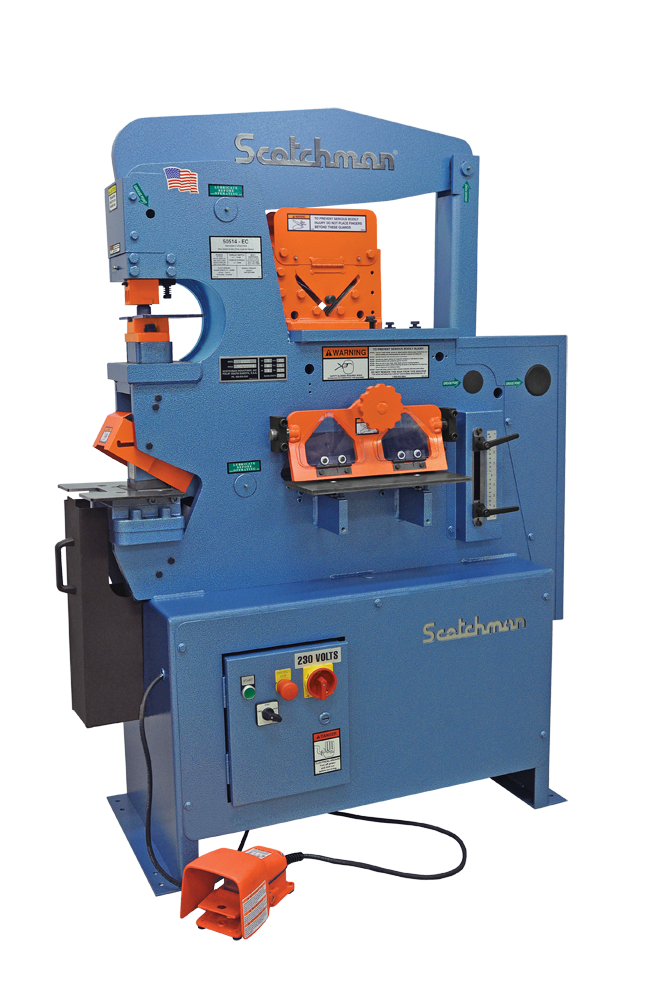Elite Metal Tools Articles
Industry news, tips, and updates on all things Elite Metal Tools
Top 10 Things to Know When Considering Buying An Ironworker
Submitted by bmcandrews@eli…
on
The Top 10 Series is an excercise in which we try to anticipate the most common questions as they relate to the purchase of machinery and accompany them with the answers. If you have a question that you think would be a good fit please contact us.
If you are considering ordering an ironworker machine, here are the top 10 things you should consider:
- Capacity: The first thing you need to consider is the capacity of the ironworker machine. It is important to select a machine that can handle the thickness and type of metal you will be working with.
- Punching capacity: The punching capacity of an ironworker machine is important because it determines the size and shape of the holes you can punch in your metal. Be sure to select a machine that has the punching capacity you need.
- Shearing capacity: Ironworker machines also have shearing capacities, which determine the size and shape of the cuts you can make in your metal. Be sure to select a machine with the shearing capacity you need.
- If you are looking for an Ironworker that can shear flat bar at 3/8" thick by 10" (max 14") wide mild steel then check out the Edwards 55 Ton Ironworker 230V, 3Ph IW55-3P230 /product/13589
- If you are looking for an Ironworker that can shear flat bar at 3/8" thick by 10" (max 14") wide mild steel then check out the Edwards 55 Ton Ironworker 230V, 3Ph IW55-3P230 /product/13589
- Notching capacity: If you need to create notches in your metal, you will need to select an ironworker machine with the notching capacity you require.
- If you are working on a project that requires notching please check out the Scotchman 50514-EC 230V Three Phase 50 Ton Hydraulic Ironworker 560054 as it comes standard with a notcher. /product/9274
- If you are working on a project that requires notching please check out the Scotchman 50514-EC 230V Three Phase 50 Ton Hydraulic Ironworker 560054 as it comes standard with a notcher. /product/9274
- Angle cutting: If you need to cut angles in your metal, you will need an ironworker machine with angle cutting capabilities.
- Material handling: Consider the material handling capabilities of the machine, such as the ability to feed metal into the machine and to remove finished pieces.
- Power: Ironworker machines come in different power configurations, so be sure to select a machine with the power you need for your specific application.
- Size: Consider the size of the machine, as well as the amount of space you have available in your shop or workspace.
- Accessories: Ironworker machines can come with a variety of accessories, such as punches, dies, and blades. Consider what accessories you will need for your specific application.
- Brand and reputation: Finally, consider the brand and reputation of the manufacturer. Look for a machine from a reputable manufacturer that offers good customer support and a warranty on the machine.

